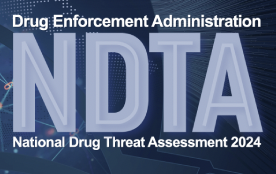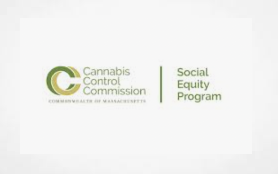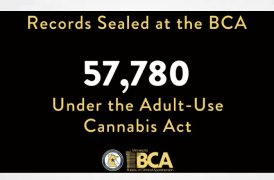Authored By: William F. McDevitt, Esq.
This September, Philadelphia’s Little Baby’s Ice Cream celebrated the opening of its third store by releasing a vegan chocolate dessert infused with 100 mg of cannabidiol or CBD. It’s great publicity. Personally, this author thinks Little Baby’s best publicity is its products – I’ve hired Little Baby’s catering, sharing and enjoying Earl Grey Sriracha, Thai Iced Tea, Chocolate Speculoos and others with a backyard full of friends.
Little Baby’s publicized their CBD offering through email blasts and a prominent article in the Philadelphia Inquirer. It’s another example of how they differ from the hometown comfort you get from Bassets or the orchestrated wackiness of Ben and Jerry’s (available everywhere, including an often overlooked shop on Sansom Street). Little Baby’s gives you something you didn’t even know you could have and breaks down expectations.
Also, Little Baby’s is breaking the law. Officially, the federal Drug Enforcement Administration (DEA) has taken the position that CBD is an illegal derivative of cannabis, even when it is derived from industrial hemp that contains less than 0.3% tetrahydrocannabinol (THC). CBD oil that is processed from hemp does not contain THC, and some courts, most notably the Ninth Circuit Court of Appeals, have said that CBD “sourced” from hemp does not fall within the legal definition of marijuana under the Controlled Substances Act. CBD oil that is distilled from the cannabis sativa plant can contain THC if that is the processor’s goal, though processors may opt to market CBD isolates that contain no THC.
“State legal” CBD remains an enigma. Technically, a licensed cannabis grower/processor in Pennsylvania could create a CBD product that has a minimal amount of THC (Pennsylvania’s Medical Marijuana Law does not allow for the sale of THC-free products), but those products could only be sold in licensed dispensaries. Similarly, New Jersey law allows cannabis products, which arguably would include CBD distilled from cannabis sativa plants, to be sold to patients with certified medical conditions. Given the widespread availability of CBD outside of the state medical marijuana programs, few licensed dispensaries appear to be investing in CBD processing.
Under the 2014 Farm Bill, universities are permitted to cultivate and/or partner with private farmers to cultivate hemp under “pilot programs” that are aimed at assessing the potential profitability of the crop. State authorities then have the discretion to certify the sale of raw or processed “pilot program” hemp. The amount of hemp being cultivated, sold and commercially processed through the Pennsylvania and New Jersey pilot programs, if any, has yet to be disclosed. Hemp grown under these programs should only be sold within the state because the Farm Bill programs require state enabling legislation that limits cultivation, processing and sale within the confines of the participating state.
Even where CBD is “state legal,” the Food and Drug Administration (FDA) still considers CBD and all other cannabinoids to be unlawful additives. The FDA does not differentiate between the source of CBD and treats the ingredient as an adulterant or impermissible additive whether it was grown from hemp or sativa, intra-state, inter-state or internationally. Even when the FDA approved the CBD-based drug Epidolex® for the treatment of certain types of seizures, it also held that this substance remains illegal in the United States under the Controlled Substances Act.
The DEA is not currently prosecuting CBD sales on any large scale, and state regulators are not limiting CBD sales to domestic producers. The FDA has issued cease-and-desist letters, but has been sporadic in its enforcement. Some state regulators have targeted CBD, but neither Pennsylvania nor New Jersey has prioritized regulatory action on the industry.
Today, CBD is sold in health food stores, pet food stores and even some mainstream supermarkets in Pennsylvania and New Jersey. Little Baby’s is not the first ice cream company to sell a CBD-infused product and probably won’t be the last.
The lack of federal and state enforcement of existing CBD laws and regulations has given rise to a steadily growing market for a product that is becoming almost ubiquitous in American society. As the market grows, CBD gains greater acceptance and popularity. It must be remembered, however, that until the DEA recognizes CBD as a non-scheduled substance, any entity selling CBD directly or as an additive, regardless of source, faces the risk of federal or state prosecution.
About the Author
William F. McDevitt is a partner in the Philadelphia office of national law firm Wilson Elser, where he is a member of the firm’s Cannabis Law practice. He can be reached at william.mcdevitt@wilsonelser.com.

















